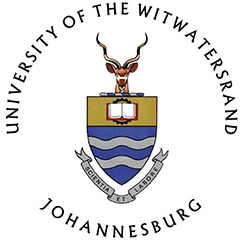 301-400
301-400 


The University of the Witwatersrand is a research-intensive university located in the heart of Johannesburg; a dynamic, metropolitan, world-class African city. Its distinctive capabilities have contributed to the global research and development agenda through leading-edge scholarship and have produced global citizens who are passionate about intellectual and social engagement. Wits’ academic and research excellence has grown from strength to strength since this University acquired its full status as a university in 1922. We aim to build on this reputation aggressively by intensifying our efforts to create an environment conducive to elevating the standard and impact of research, quality of teaching and learning, and the rigour of intellectual and social engagement, to new heights. The University of the Witwatersrand is an urban university located in the heart of a populous, vibrant but also complex metropolitan city, an interconnected economic and physical space now officially known as the Gauteng City Region (GCR). Wits has a strong history of achievements that distinguish it in many ways from other universities in South Africa. These realities include the following: 1. Wits has a very high proportion of its enrolments in the Science, Engineering and Technology disciplines, including high levels of Masters and Doctoral students; 2. Wits’ strength in postgraduate education is reflected in the fact that one-third of our students study at this level. Importantly, a quarter of these are international students who have been attracted to postgraduate study at Wits; 3. The high quality of Wits graduates is reflected in the fact that 90% of graduates that the University produces get permanent employment within 12 months of graduation (excluding those opting to pursue further studies or not to seek employment); 4. Wits’ powerful research track record is reflected, in part, in the 23 fields of study where the University ranks favourably in the world. We have shown especially strong growth in both the engineering and social science fields, signalling the breadth and balance of our disciplinary excellence. Further, our publication record shows a very high level of international collaboration: a substantial percentage (44.8%) of all papers published by Wits academics in International Science Index (ISI) journals have at least one international co-author; 5. Wits’ professional disciplines remain leaders in the country, producing graduates who are in demand globally. Wits continues to offer high-quality education in these disciplines, which cut across all faculties, putting emphasis on engineering, health sciences, commerce, law and some areas in the social sciences and the humanities; 6. The strength of Wits in the science and engineering disciplines has, over the years, created a strong culture of innovation and the creation of support structures for the commercialisation of ideas and research results. This, together with the activities of the Learning Information and Knowledge (LINK) Centre on ICT policy, regulation and management, and the more recently established Centre for Entrepreneurship and the teaching and research programmes on Strategic Management of Innovation, both in the Wits Business School (WBS), have considerably elevated Wits’ standing as a university of relevance in the “knowledge economy”; 7. Rapid urbanisation and growth of the city and the city region of Gauteng have created a slew of unique opportunities of engagement in a variety of other fields that have been and are being pursued with vigour by our academics. Strong examples include the Gauteng City Region Observatory (GCRO) and the Johannesburg Centre for Software Engineering (JCSE). Strong research and policy advice is provided by (among many others) the Forced Migration Studies Programme, at the Centre for Urbanism and Built Environment Studies (CUBES), and the Sociology of Work Project (SWOP); 8. Wits’ long-acknowledged leading position in the health sciences is augmented by its strong foothold in a typical vulnerable rural setting at Agincourt in Mpumalanga, where ongoing research on the ‘quadruple burden of disease’, coupled with the availability of extensive longitudinal datasets, provides unique opportunities for cutting-edge research into comparative studies in urban and rural settings, particularly if seen in conjunction with the activities of the Perinatal HIV Research Unit at Chris Hani Baragwanath Hospital, which is one of the largest AIDS research centres in Africa, the Birth to Twenty programme and the Heart of Soweto study; 9. Wits has a strong tradition of public intellectual debate. Through its Distinguished Scholars Programme, Wits continues to attract internationally renowned scientists and Nobel Laureates from around the world to participate in scholarly activities of the University; and 10. In the past five years Wits has repeatedly been ranked as one of the top 500 of approximately 20 000 universities in the world. This attests to Wits’ existing internal capacity and the reality of its ability to produce research with high international impact and to offer high-quality education.
 301-400
301-400 
| Subject | Rank |
|---|---|
Geography | 101-150 |
Public Health | 101-150 |
Physics | 201-300 |
Ecology | 201-300 |
Biological Sciences | 201-300 |
Human Biological Sciences | 201-300 |
Clinical Medicine | 201-300 |
Law | 201-300 |